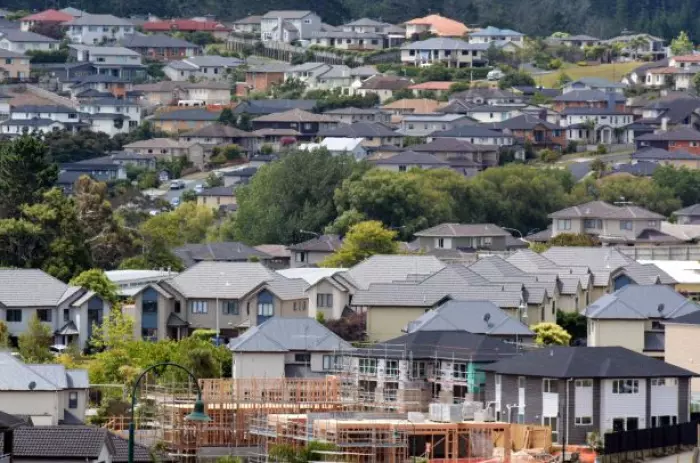Home truths about house prices
“If you want big capital gains, Gisborne is the place to be” was the lead sentence in one of yesterday’s Sunday newspaper stories on our fevered property market.
Why?
The latest real estate property sales data apparently show average house prices in Gisborne up 31 percent now over the same time last year - the largest increase of a generally high rate of house increases across the country.
So the statement is wrong.
If you wanted big capital gains in November 2019, then, yes, if you’d been smart or lucky enough to buy in Gisborne, you would have done very well over the past 12 months.
But there is absolutely no guarantee that Gisborne will pull away further from the provincial pack from now on – nor, even that house prices overall will not come off their recent highs.
We just do not know.
Neither monetarist nor Keynesian economists predicted that the monetarist policy of high unemployment to fight inflation, which achieved political ascendancy in the 1970s and 1980s, would be steadily overturned by the ‘Great Moderation’ of the 1990s and 2000s.
This more recent trend saw persistently low inflation accompanied by a gradual downward trend in unemployment.
Theory vs practice
Even in retrospect, monetarist economists, with their rigid notion of a high ‘natural’ rate of unemployment, can’t make sense of what happened.
Keynesians can, because we believe that steady full employment is ultimately good for productivity and thus for costs and thus for inflation: it encourages people to invest in human and physical capital.
Economists might have been able to predict - or at least explain concurrently - that the establishment of very low and stable inflation as the ‘new normal’ would eventually wipe out the risk premium previously built into long-term interest rates.
This resulted in the historically very low mortgage and other interest rates that now both encourage ‘investment’ in housing and make such investments cheaper, through the lower carrying costs of mortgage loans.
You don’t have to be an economist to understand that this two-pronged boost to the demand side could result, as it has, in price increases in all non-financial assets: the share market; the art market; and, of course, the housing market.
Leave the government out
But no-one can predict whether, or how long, this situation will last.
That is one of two big reasons why the government should not be getting involved. It’s just too risky and not a proper use for public money, anymore than we would want the government to try to intervene in the equally ‘overheated’ stock market.
Let the private sector take its licks here.
The second factor is: why should government intervene?
Where is the market failure? The harm done to innocent third parties which must be a necessary, though even then, not sufficient, reason for public policy action on an issue.
Unlike the stock market, with its large foreign-owned share, residential property in New Zealand is overwhelmingly locally owned.
This means that, from the national interest point of view, there is no particular national interest: losses and gains on house prices that New Zealanders buy and sell to one another depend on which way the prices go.
Why own a house now?
You could suggest that the exception here is would-be first-home buyers, who have nothing to sell.
We may easily have sympathy for these striving souls, especially if they are our children or relatives and we are not ourselves in a position to help them financially.
But, honestly, what is this thing we have about having to own a house, now?
The media connive in what threatens to become a panic: a newspaper story in both the NZ Herald and Otago Daily Times last week carried the headline: ‘Housing ownership lowest since 1951’.
It referred to owner-occupied housing rates of about 65 percent in 2018 – down from a peak of 74 percent in 1991.
Well, it turns out that the rate was also around 65 percent in 2013, so the downward trend seems to have levelled out. And what’s wrong with it, anyway?
Would-be owner-occupiers have their legitimate interests, but that doesn’t mean they should be assisted publicly. There is a serious risk that action to help them might backfire and, at the least, be contradictory to other public policy interventions.
First-time buyers most exposed
Policies that do ‘take the steam out of’ the housing market will actually be harmful for first-time homeowners, who will risk losing the deposits they have scraped together to qualify for a mortgage and watching it disappear into the pit of negative equity.
So there is no housing problem then? Wrong.
The NZ Green Building Council says that “up to 40 percent” of our housing stock is damp and mouldy.
I am not sure what ‘up to’ means, but we can probably agree that we have a major quality problem here, not worthy of a supposedly prosperous, first-world country.
This is a problem for which government intervention is warranted in principle, by the negative externalities of poorly heated, poorly insulated, drafty houses: in particular healthcare costs and probably learning and other difficulties for children brought up in sub-standard housing.
It’s also just not very pleasant having to put up with inadequate shelter.
WOFs for homes
Governments can usefully intervene here with tighter ‘warrant of fitness’ standards for rental properties.
We do this for cars – why not for homes?
Other supply-side policies may make sense, e.g., building more ‘social housing’, perhaps tied in to rent-to-own financial arrangements, to build equity for those who really care about it.
Such socially beneficial policies and programmes may well eventually also take the steam out of the property market, in sunny Gisborne and other nice places in Aotearoa New Zealand.
Tim Hazledine is an economics professor at the University of Auckland Business School














